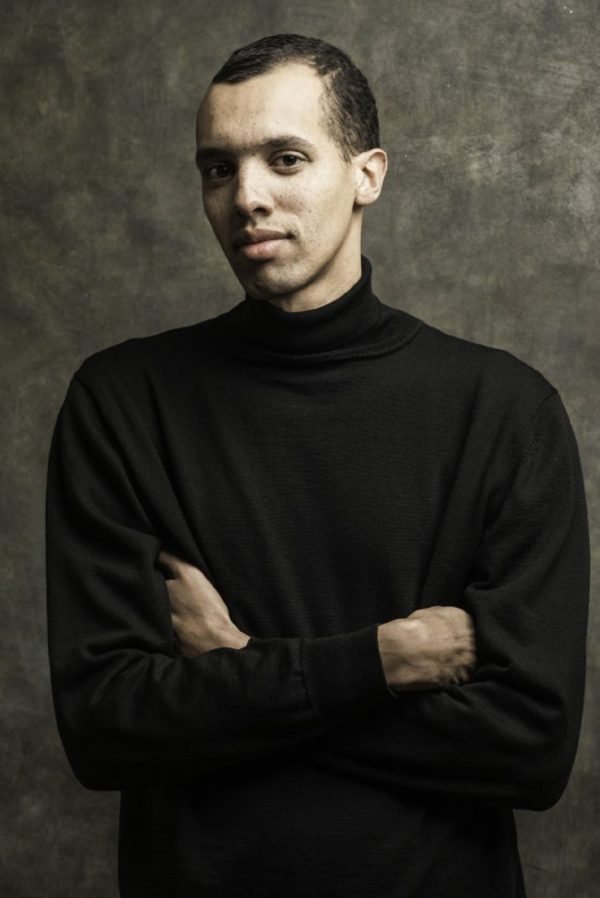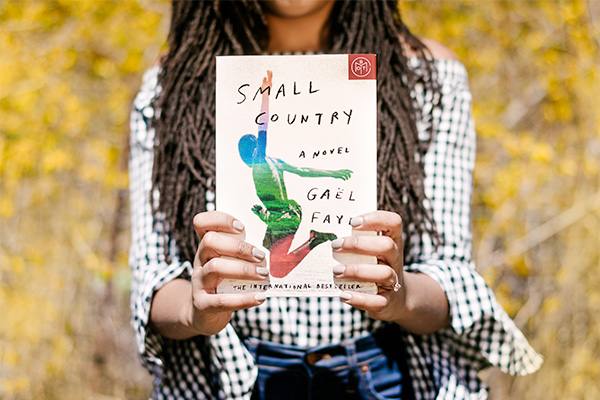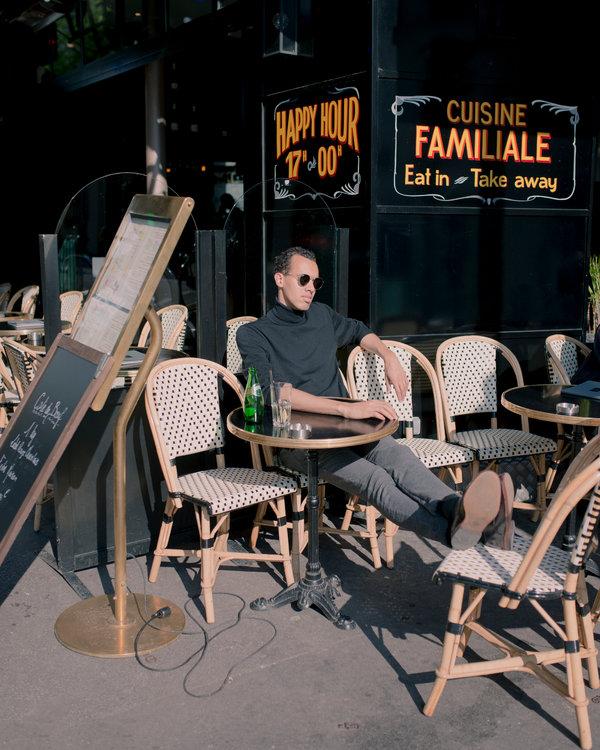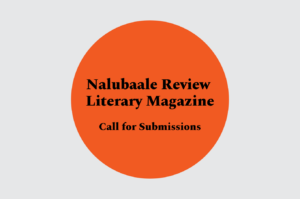
“WHEN I GROW up I want to be a mechanic, so nothing ever stays broken in my life,” says Gaby, the 10-year-old narrator of Small Country, the English translation of the French-language novel Petit Pays, the literary debut by long-time rapper Gael Faye which has sold more than 700,000 copies, been translated into 35 languages, and scooped five prizes. Gaby is living between different worlds, between “Africans and Europeans, black and white skins, Hutu and Tutsi, childhood and adulthood, urban and rural, domestic life and street experiences, peace and war,” Faye states in an interview with his publisher, Penguin Random House. In many ways, Gaby, whose story begins in 1992 in Burundi, is an autobiographical extension of himself: a child who has found his country eaten by genocide and a decade-long civil war.
Born in Burundi, in 1982, to a French father and a Rwandan mother, Faye moved to France in 1995 after the Rwandan genocide. There, he studied finance, getting a master’s in the field, before working for two years in London for a hedge fund. It was then that he took up music, finding his first success in hip hop as part of a group called Milk, Coffee and Sugar.

Simultaneously, his literary story was happening. “I started to write poetry when I was thirteen during the civil war in Burundi,” he told Penguin. “A few years later, I transformed my poems into songs. Poetry is my first passion. I’m interested in the sound of the words and the pace of the language.”
In 2012, he was contacted by Parisian editor Catherine Nabokov, niece to Vladimir Nabokov. Her son had played her Faye’s songs from his 2012 album, Pili pili sur un croissant au beurre (Chili Pepper on a Butter Croissant), and she heard in it the potential for written storytelling. They began talking. “He would send me texts,” Nabokov told Publishing Perspectives, “and we would skirt around the issue. I told him that if he felt intimidated by the novelistic form, he could start by writing in narrative form. We talked and talked, and things were taking form on his end. Then he sent me 15 pages. And all of a sudden everything was very clear.” Nabokov sent the 15 pages to Juliette Joste, an editor at Grasset, and a deal was signed. Shortly after, in 2015, a band-mate left Milk, Coffee and Sugar and the group dissolved, allowing him time to focus on the book.
Initially, Faye “wanted to use two voices, sometimes even three. He wanted to weave together the voice of the adult and the child all along. He tried that for a while.” Eventually, he chose the child’s point of view because “it was more poetic. When you’re a child, you’re not trying to find a solution. You don’t look for excuses for violence, ethnicity, war. The perspective was more interesting.”
Another phenomenon that interested him, and which proved chilling for readers, was the use of classical music on Burundian radio to depict an ongoing coup. “In 1966, it had been Schubert’s Piano Sonata No. 21,” notes The New York Times in a profile of him. “In 1976, Beethoven’s Seventh Symphony; in 1987 Chopin’s Bolero in C Major; and on Oct. 21, 1993, it was Wagner’s ‘The Twilight of the Gods.’”

The first draft came in three months, and in October 2015, the final version was ready. “I accompanied him, and Juliette [Joste] was there just in case, because sometimes you’re so close to a text you need a fresh eye,” says Nabokov. “But we got along right away, I immediately thought, this is someone exceptional. It has been one of the most singular encounters in my life.” Before Petit Pays was published by Grassets on 24 August 2016, the publishing house’s sales director Christine Lagarde estimated that it would sell “3,000, 5,000 or 10,000 copies, and as far as I’m concerned, with this one, there’s no limit.” Faye himself was far less expectant. “To be honest I was expecting it to sell about 500 copies and then I would quietly go back to my music,” he told The New York Times.
But buzz began before its publication, word going out that it would be the Book of the Season, and when it landed, it swiftly shifted hundreds of thousands of copies, passing the 700,000 mark. It was the recipient of the Prix Goncourt des Lycéens in 2016, and winner of the Goncourt List in four territories: it was Tunisia’s Choice, Poland’s Choice, and the Choice of the Orient in 2016, and Serbia’s Choice in 2017.
The novel’s English translation, Small Country, done by Sarah Ardizzone, was published in June by Penguin Random House and Hogarth. Longlisted for the 2019 Andrew Carnegie Medal for Excellence in Fiction and the 2019 Aspen Words Literary Prize, Small Country was selected by Time for its “Best Summer Books of 2018” and by Esquire for its “Best Books of 2018.” It joins a small number of books by Africans about pre-1994 Tutsi-Hutu relations and the Rwandan genocide to get international release in English and acclaim—a group including, most notably, Scholastique Mukasonga’s novel Our Lady of the Nile (published in English in 2015), currently in film production, and Clemantine Wamariya’s memoir The Girl Who Smiled Beads (2018).
FAYE HAS OFTEN discussed his creative processes in both music and writing, in switching from one to the other. He told Penguin: “Creating a song is more to build sound and rhythm, while fiction introduces the challenge of building a world from scratch. It seems like two different methods, but for me it ends up as the same impulse.” Later he told Publishing Perspectives: “It’s easier to write a novel because you do it alone and there’s more freedom. I didn’t have melody or rhyme or format to think about, or radio singles. But this freedom can be frightening. Writing a song is like swimming in a river with banks on each side and writing a novel is like swimming in the ocean.” The novel took its name from his 2012 song, “Petit Pays.”
At the moment, in Kigali where he lives with his family, Faye is working on cinema screenplays, a new album record between France and Rwanda, and, Publishing Perspectives learned, “a new novel about an African-European rock star.” This year, before Small Country was published in English, his song “Stage Révélation” won a Victoires de la Musique, the French equivalent of a Grammy.
Faye has hopes for his hundreds of thousands of Small Country readers: “Every day in our world, we hear the terms ‘migrants’ and ‘refugees,’ but we forget that behind these words, there are names, dreams, and voices. This novel is a long poem about one of those kids, from a distant conflict, who finds his own words to tell his name and his story. And I hope also that the readers can discover Burundi because this is one of the first novels to talk about this small and relatively unknown country.”
Brittle Paper congratulates Gael Faye.
Watch a live performance by Gael Faye here:









Βιβλίο Αφροδίτη Δημοπούλου : Gaël Faye “Μικρή πατρίδα” 1 June 04, 2022 02:16
[…] Δείτε και εδώ […]